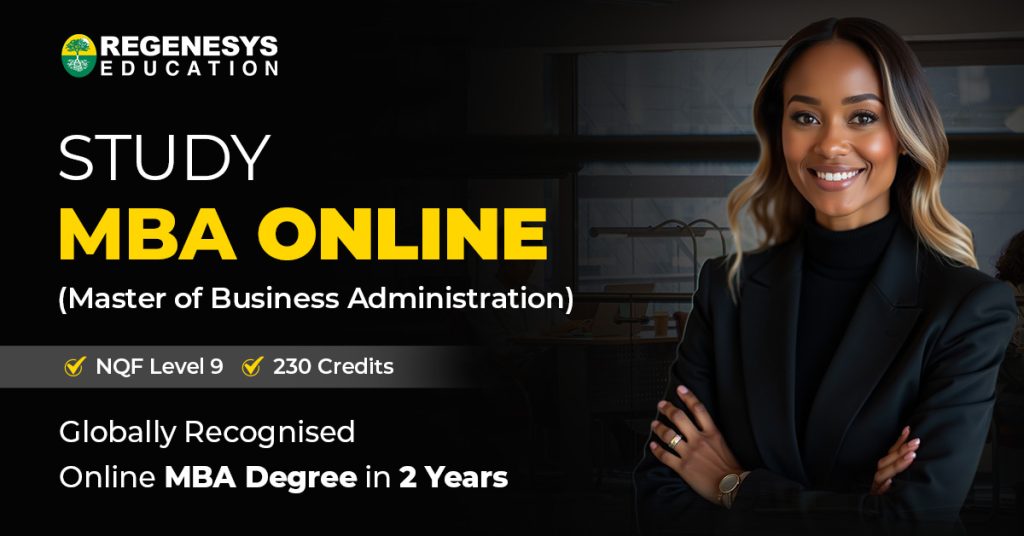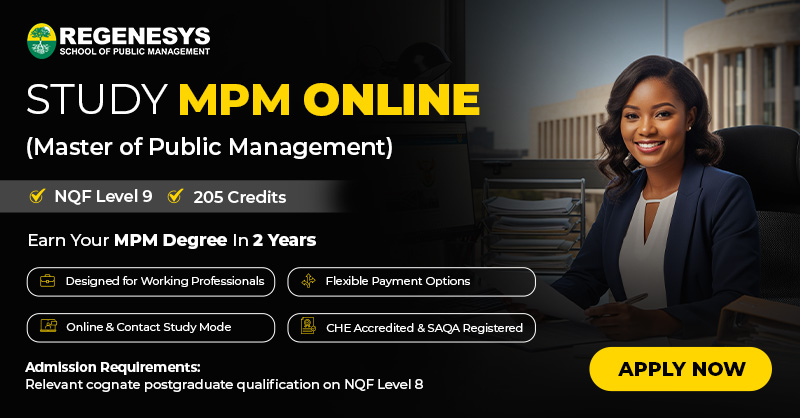What happens when you put some of South Africa’s top employers, recruiters, and graduates in one room? You get uncomfortable truths, and you get the kind of insights no textbook can teach. That was the energy at the Breakfast Industry Indaba: A Day with Employers, held on 26 September 2025 at Regenesys Education in Sandton.
The career day event pulled together corporate heavyweights from Santam, BP, EY, Huawei, Dananda Talent, the QCTO, and the legal profession, alongside alumni and human resource specialists. The question on the table: How do you future-proof a career when AI is rewriting job descriptions, rejection is the norm, and reputation is currency?
What followed wasn’t polite advice. It was a blueprint for survival and success, in a job market that rewards adaptability, resilience, and purpose-driven action.

Education Must Meet Employment
Opening the day, the Dean of Regenesys Education, Dr Sibongiseni Kumalo, put the challenge simply. Degrees matter, but relevance comes from how quickly you connect learning to real business problems. Visibility is not vanity. It is proof. If employers are co-creators of education, then events like this are where the curriculum meets the market.
Build A Career the Future Cannot Ignore
Executive Head: Human Capital at Santam,
Norah reframed the conversation. Do not ask only what job you will get after graduation. Ask how your chosen path will coexist with AI, and whether you are building your career now. Her message was not alarmist. It was practical.
- Upgrade relentlessly. Treat every term as a sprint that produces a visible skill. Get comfortable with data, analytics and the tools that speed real work.
- Guard your reputation. Your public footprint travels ahead of your CV. Curate it. Assume it will be checked.
- Network with bounceability. Rejections are information. Iterate and persist.
- Choose purpose. Salary matters, but purpose sustains performance when the work is hard.
Her mandate was crisp: compound skills, signal credibility, and aim for environments where your values and energy compound too.
The Employer Panel: Seven Vantage Points On The Same Problem
Ramovha Emmanuel Mbuwe
Chief Director, Quality Council for Trades and Occupations (QCTO)
Mbuwe attacked the experience paradox head-on. If a first role asks for experience, manufacture it on purpose. Volunteer in places that run on trust and pressure, from schools to non-profits. Scope work you can quantify, then put the numbers on your CV. Reliability, teamwork and initiative are easier to hire when they are evidenced rather than promised.
Nicci Legoka
Professional Hiring and Early Careers Senior Advisor, BP
Legoka’s lens was pipelines. Early-career hiring is increasingly skills-based and programmatic. Candidates who tailor their CVs to a function, showcase small but complete projects, and demonstrate learning velocity move to the top of the pile. Generic applications read as risk; evidence of output reduces it.
Noleen M. Williams
Africa Employee Experience Leader, EY
Williams brought the culture test into focus. Technical fit gets you short-listed. Culture fit keeps you. She urged graduates to research how a firm makes decisions, treats feedback and handles integrity issues. If your values and working rhythm are misaligned, momentum stalls. The winning signal is coachability plus a pattern of following through.
Thembi Manyike
Head: Talent Acquisition and Employer Branding, Santam
Manyike connected brand and hiring. Your digital presence is a pre-interview. A clear LinkedIn headline, a summary that names outcomes, and a steady trail of useful posts make you easier to champion internally. Employer branding is two-way. As candidates market themselves better, matches improve and time-to-hire falls.
Peta Lee
CEO, Dananda Talent
Barnard’s agency view was blunt. Portals are one lane. Relationships create others. Keep a short list of target companies, find real humans, and follow up with context and courtesy. Outcome-rich bullets beat duty lists every time. If you cannot show change you effected, you are asking a hiring team to take a bet without odds.
Tshepo Sebeso
Training Manager, Huawei South Africa
Sebeso stood for the operator’s reality. Tech hires who last combine certifiable skills with soft-skill discipline. Curiosity, communication and pressure handling are not extras. They are throughput multipliers. Start anywhere, learn everything, and be the teammate who documents, shares and improves the next person’s speed.
Elizabeth Chileshe Chabalala
Advocate of the High Court of South Africa
Chabalala captured the legal tightrope with AI. Use it to accelerate research, structure arguments and polish language. Do not outsource judgement. The practitioner is accountable for accuracy, ethics and consequences. For law students, there is opportunity in IP, data privacy, compliance and legal operations, where technology and rule of law collide.

Alumni Spotlight: Mohale Motaung On Momentum
Mohale Motaung, Regenesys Alumnus & Brand Strategist, spoke to momentum and visibility. Careers rarely progress in straight lines. The compounders are those who keep showing work, ask for feedback in public, and translate small wins into next-step opportunities.
Palesa Kganyago
Deputy Manager Human Resources, Obadya Group
- Structure CVs for skim-ability. A tight profile, outcome-focused bullets, and clean formatting beat dense lists.
- Tailor to each role. Mirror the language of the job with integrity.
- Avoid the common traps: duties without numbers, unexplained gaps, and vague jargon.
Nthati Keta-Onwugbonu
Delivery Lead: Recruitment, Afrika Tikkun
- Build a LinkedIn headline that states target role and edge.
- Use the Featured section to showcase evidence. Even small student or volunteer projects count.
- Engage weekly. Comments and short posts train the right people’s feeds to find you.
Closing Insights: Herman Masenya On Recruitment Realities
The last word came from Herman Masenya, a seasoned recruiter who fielded tough questions from students on CV screening, AI-driven applicant tracking systems, and the myth of the “six-second CV scan.” His guidance was pragmatic: don’t over-rely on automated portals. Instead, build direct relationships with recruiters, follow up with calls, and make yourself visible beyond the inbox.
He also stressed that while algorithms may filter applications, human recruiters ultimately hire people who demonstrate curiosity, resilience, and cultural alignment.

Answers To The Most Asked Questions
How do I gain experience if every role demands it?
Create it. Build a four-week project for a non-profit or small business and quantify the outcome. Experience is proof of action, not only payroll history.
Can AI replace junior legal work?
It can automate parts of research and drafting. It cannot replace judgement and advocacy. Use it to go faster and write cleaner, then do the thinking yourself.
Do recruiters really look at social media?
Yes. Often before interviews. Make LinkedIn your primary stage. Keep personal platforms private unless they are part of your professional brand.
How do I get past automated rejections?
Portals are one lane. Relationships create second and third lanes. Warm introductions, thoughtful follow-ups and a portfolio that proves outcomes change the odds.
What To Do In The Next 30 Days
Week 1. Ship one skill.
Pick a micro-course that outputs something tangible. Publish the output and add it to your LinkedIn Featured section.
Week 2. Manufacture experience.
Scope a four-week project for an SME or NPO with a measurable outcome. Get a named reference and a two-line recommendation.
Week 3. Build surface area.
Choose ten target organisations. Identify one hiring manager and one peer at each. Engage publicly, then request short calls.
Week 4. Proof over promises.
Rewrite CV bullets into deltas. Replace duties with numbers. Add two links for proof of work. Ask two people for specific, outcome-based recommendations.
Using AI Like A Professional
Treat AI like a power tool. It can screen sources, structure outlines and improve clarity. It cannot carry your ethics or your accountability. Use it to go faster, then do the thinking yourself. Prompt literacy paired with domain knowledge is the edge, not a way around the work.
The Hard Truth and the Real Opportunity
What the Breakfast Industry Indaba revealed is that the future of work won’t wait politely for anyone. Degrees may open doors, but only adaptability, resilience, and purposeful action keep them open. Employers are not searching for perfect CVs; they are scanning for proof of learning velocity, authenticity, and cultural alignment.
For students and early-career professionals, the call to action is blunt: invest in skills faster than technology can make them obsolete, build a digital footprint you’d be proud to defend in an interview, and treat every rejection as tuition for the eventual “yes.”
The real differentiator is not whether AI will take your job or whether your CV is formatted correctly. It is whether you can combine human judgement, ethical character, and an ability to learn in public, qualities that every speaker underscored.







